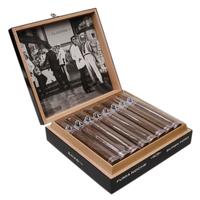A root canal from ten years ago failed recently, and I had to have the tooth pulled. My oral surgeon is very good and the process, although unpleasant, wasn't very painful. The painful part is knowing that pipe smoking and extraction wounds are not compatible. But how long will I have to abstain? While searching Dr. Google for answers, I found a lot of misinformation from wishful and uninformed smokers.I then came across this gem of a PM post from six years ago:
bsilverman
New Member
Joined: Oct 2010
Posts: 2
offline
I'll chime in here since I'm a pipe smoking dentist. Complications after extractions include bleeding, infection, inflammation, and aberrations in normal healing. Smoking can contribute to all four complications. The negative pressure of sucking through a straw or a pipe can disturb a blood clot and cause bleeding. This risk diminishes quickly. Usually abstaining for 24 hrs. is sufficient. A "dry socket" is an aberration in healing and not an infection. A dry socket is an atypical problem, but when it occurs it is characterized by two things, extreme pain (not just sore and tender) and a terrible odor. Tobacco smoke can make a person more prone to dry socket. Infection after extraction is caused by bacteria, and almost never by viruses. Even in health, there is no place on the human body with more bacteria than the mouth. Smoking does not increase the bacteria count per se. Inflammation is a different process mediated by compounds the body produces in response to a variety of stimulants including trauma and tobacco smoke. The trauma of an extraction plus the irritation of tobacco smoke can have an additive affect and exaggerate the body's inflammatory response. This can alter the healing process (dry socket), and/or make the extraction site more tender and painful. The potential problem with the increased tenderness is that it can make it more difficult to maintain good dental hygiene. Poor hygiene means more bacteria and a greater chance of infection.
The tannins in tea promote hemostasis (clotting of blood). It helps to stop an extraction site from bleeding but does not have any affect on preventing inflammation, infection, or dry socket.
There are just a few things to consider as far as what increases the likelihood of complications after an extraction, in connection with smoking. 1. How much you smoke. 2. How long you wait to smoke after the extraction. 3. How traumatic the extraction was. Smoking less and waiting longer help to avoid complications. As far as how traumatic the extraction is, this is something the patient is generally unable to appreciate. Considerations would be how much...one tooth or multiple teeth; was it a "simple extraction" or a "surgical extraction"; was bone exposed or was bone removed in order to extract the tooth; were the gums moved away from the bone in the process of extracting the tooth, and were any blood vessels within the bone itself exposed or ruptured in the process of the extraction. All these factors influence how prone one is to any of these complications.
Lastly, there are two other matters that come into play. Extractions of teeth from the lower jaw are more prone to dry socket than extractions of the teeth from the upper jaw. Extractions of posterior teeth (especially molars) from the upper jaw are prone to causing trauma to the maxillary sinuses which leave a person very prone to infection. If the floor of the sinus is irritated or damaged in an extraction, smoking should definitely be discontinued until healing is further along, I would say a week at the very least, several weeks is advisable. The problem here is that patients are generally unaware if sinus involvement has occurred, and often dentists are unable to detect that the sinus was damaged, themselves.
So don't smoke for at lest 24 hours to avoid bleeding problems. Smoke less if the extraction took more than 10 minutes (of actual working time to remove the tooth, not including getting numb, etc.), wait longer if the extraction is of an impacted tooth, especially wisdom teeth, or if there is a known perforation of the maxillary sinus. Also, use common sense. Pain is an indicator that some sort of compromised situation exists, one or more of the complications I mentioned above. If it hurts, don't smoke. That's probably your best rule of thumb. Hope this helps.
Posted 6 years ago #
Thank you, bsilverman. You only made two posts here, but you were a big help to me. I wish that you had hung around longer.







